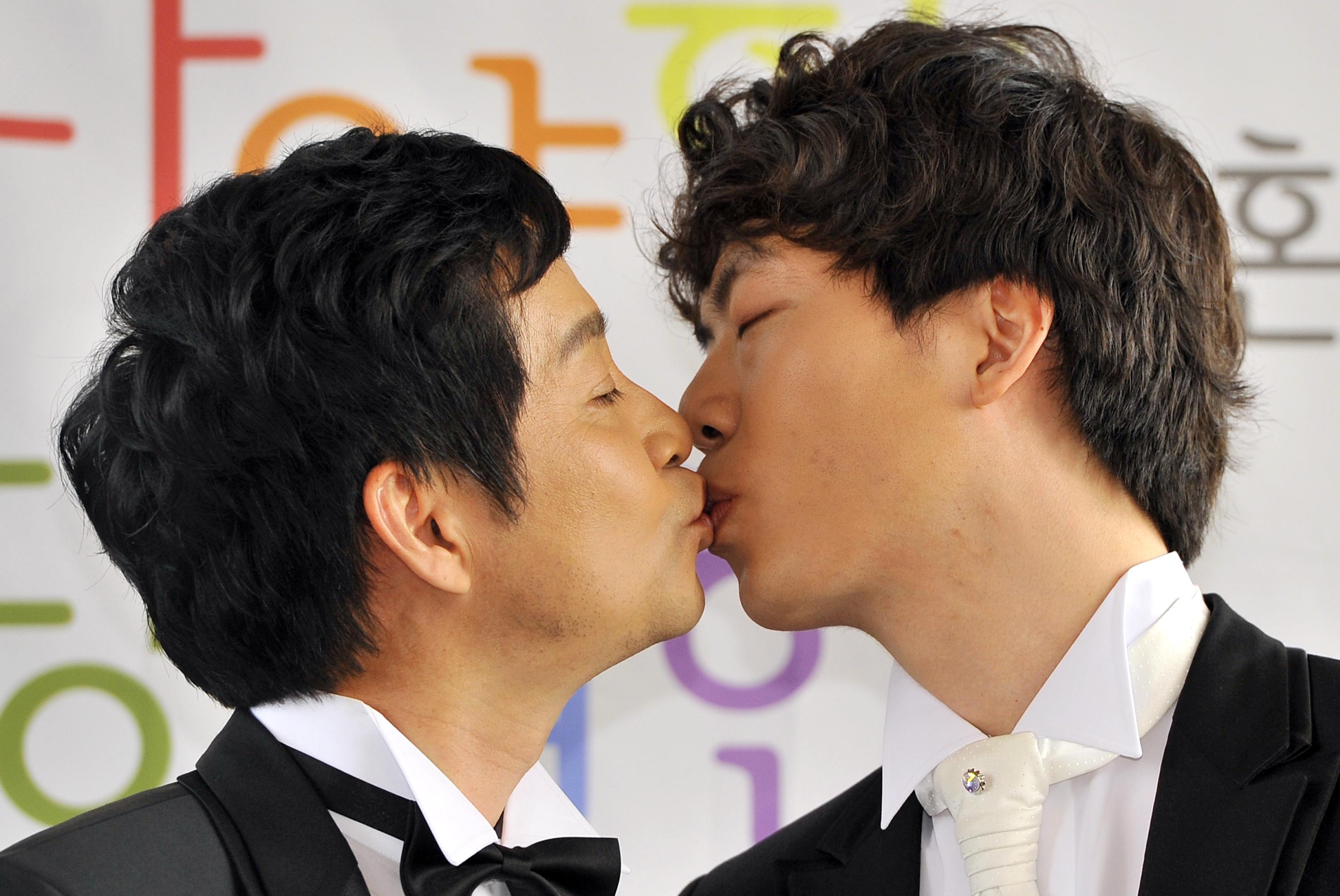And all this time we were worried that gay marriage was destroying heterosexual marriage, that the reason marriage rates were plummeting in the U.S. was because gay people wanted to steal it from us! Turns out it’s just the opposite. A new Atlantic cover story by Liza Mundy suggests that gay marriage is in fact causing a general marriage-is-cool moment, because gay couples are teaching us how to reinvent marriage so that it’s durable through the next century.
Yes, marriage has changed a lot from the Father Knows Best days, Mundy writes, but it is still burdened with old notions and habits about how men and women should behave—habits that are largely at odds with economic and practical realities. But the great gay marriage experiment gets to wipe that slate clean, for the obvious reason that there is no one man and one woman in the arrangement.
Same-sex spouses, who cannot divide their labor based on preexisting gender norms, must approach marriage differently than their heterosexual peers. From sex to fighting, from child-rearing to chores, they must hammer out every last detail of domestic life without falling back on assumptions about who will do what. In this regard, they provide an example that can be enlightening to all couples.
Without those assumptions, gay couples tend to make more logical choices. The one who is the better cook more often makes dinner, without worrying that this might violate some principles of either feminism or masculinity. The one who earns more money works more, etc. In economics this is called “specialization,” and it tends to make households —much like industries—run more efficiently. One great surprise: Gay dads, studies show, are slightly more likely to have a full time stay at home parent than straight couples. Why? Because much as we hate to hear it, that arrangement is probably more efficient and makes everyone less stressed. But the important lesson here is, the one who stays at home doesn’t need to be the mom.
The one tricky part of the great gay marriage experiment is, of course, sex. An old study from the ‘80s found that gay couples were extremely likely to have had sex outside their relationship—82 percent did. That was before AIDS and the great matrimony craze in the gay community. But still, this is likely to remain a source of some tension. Mundy tells the story of Dan Savage, who started out wanting to be monogamous until he and his partner had kids, and then they loosened up on that, in order to make their union last. “Monogamish” is what he calls his new model. “Loyalish,” “faithfulish,” anyone out there want to try it?
